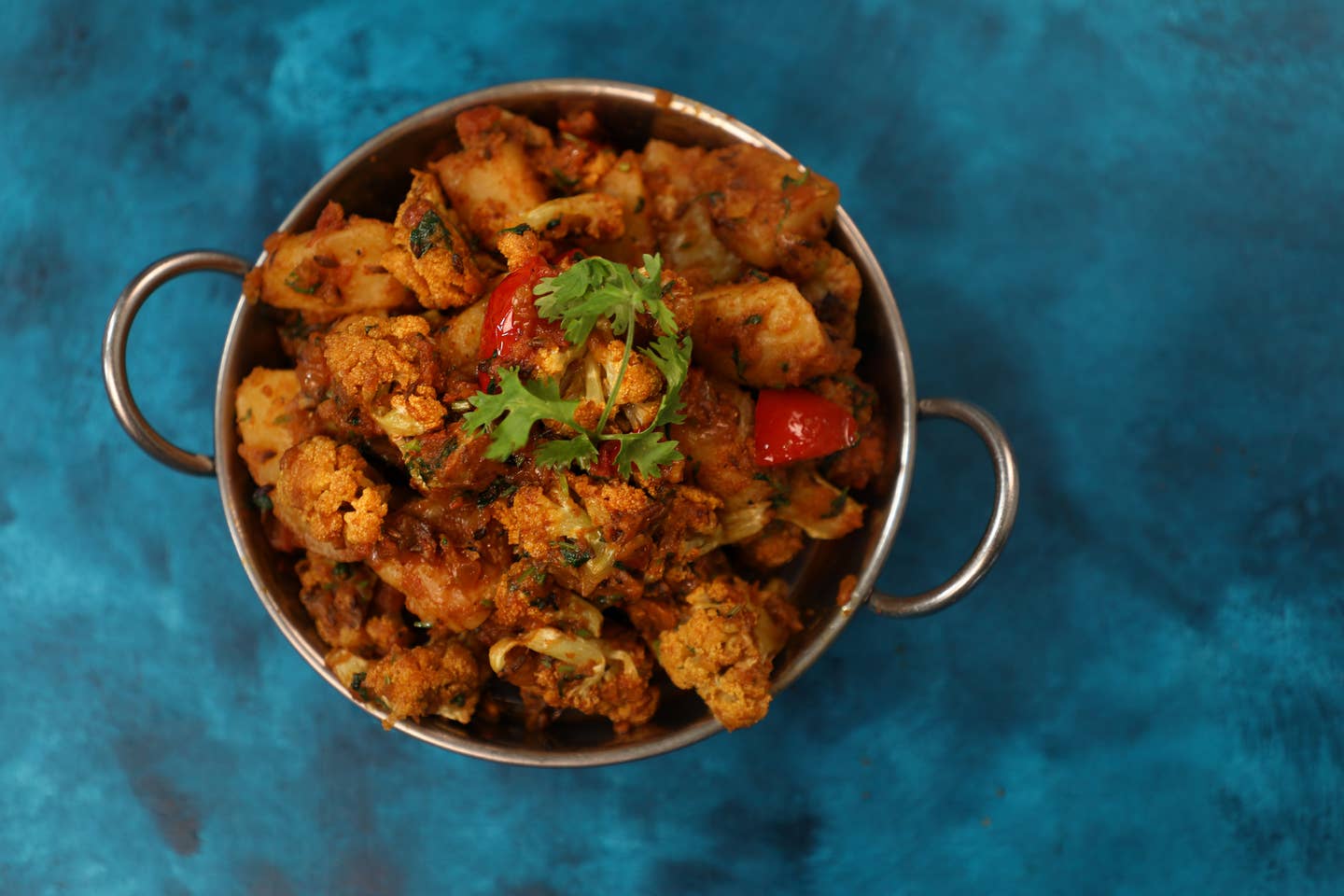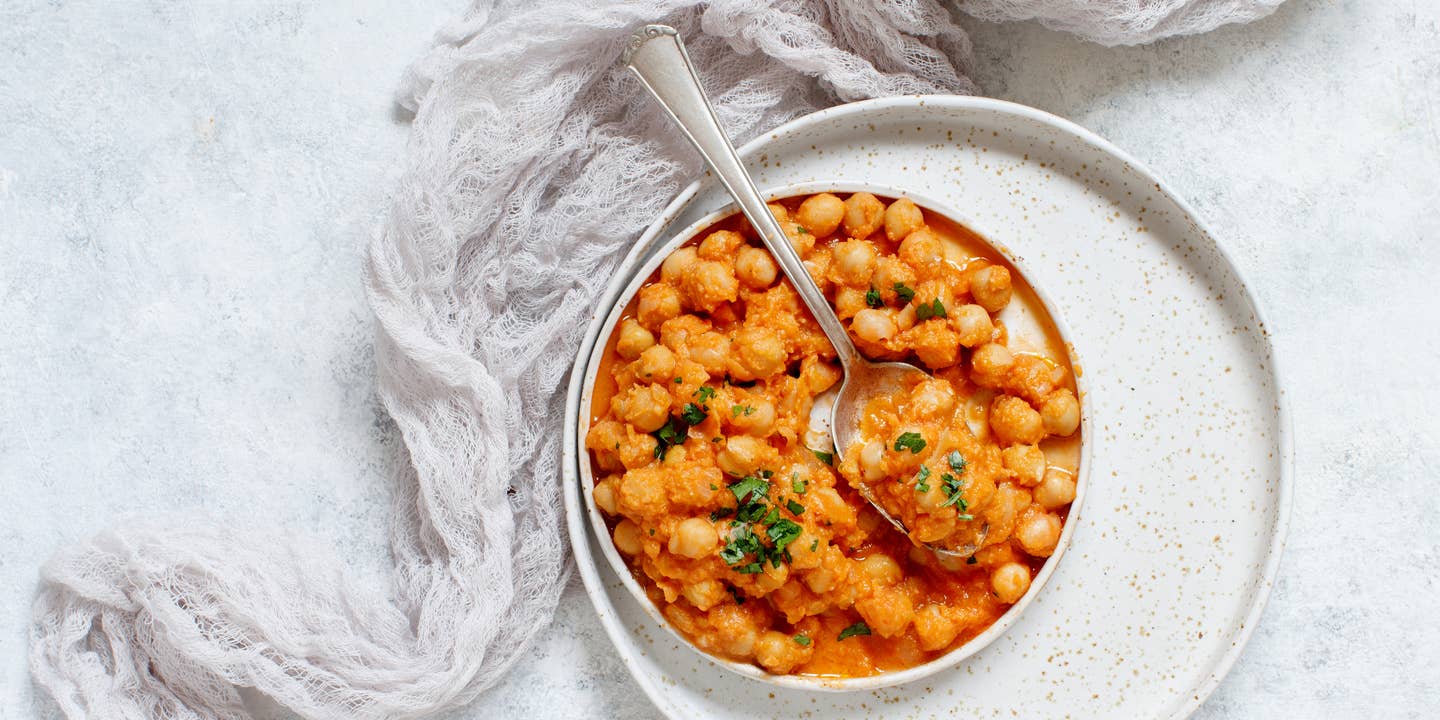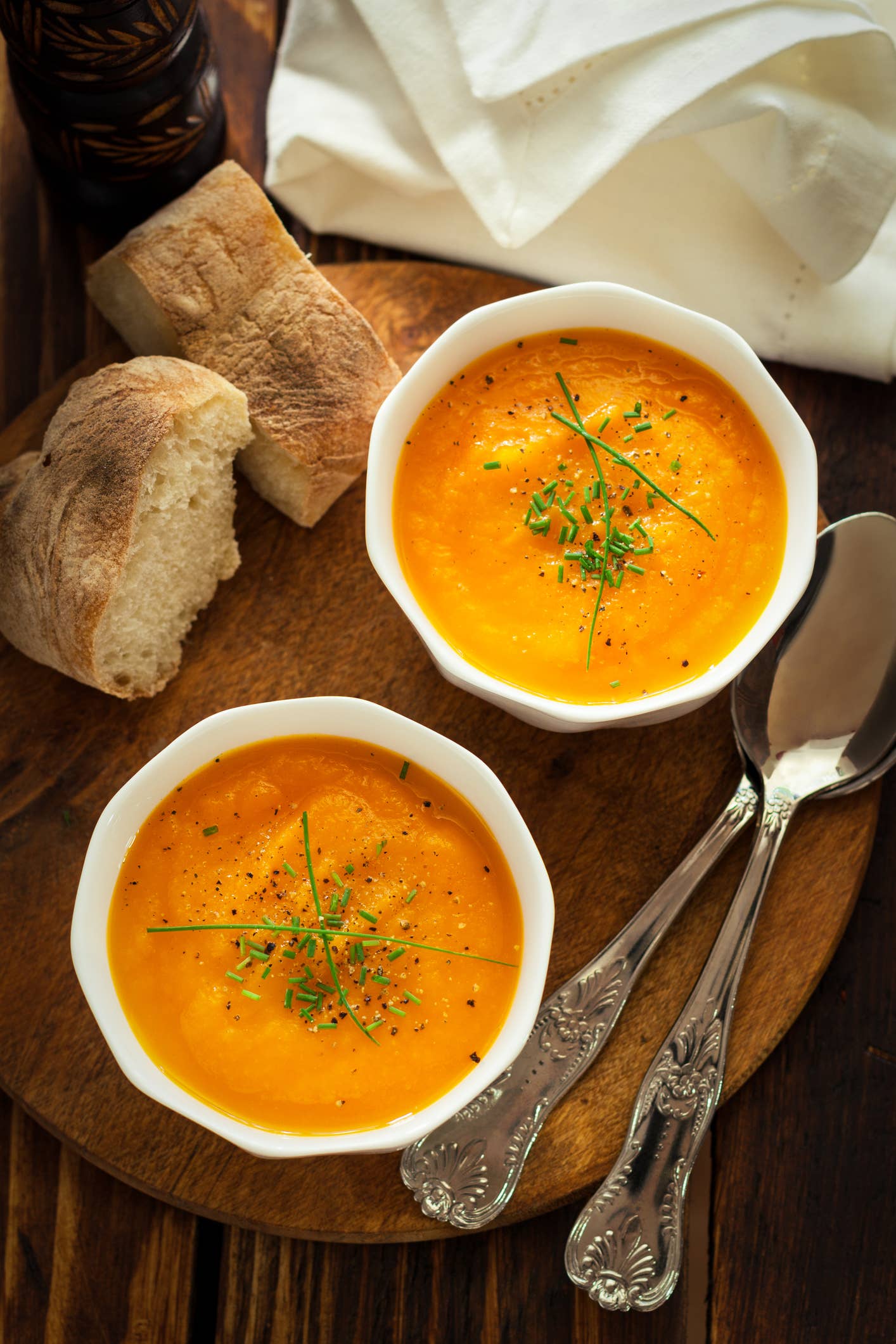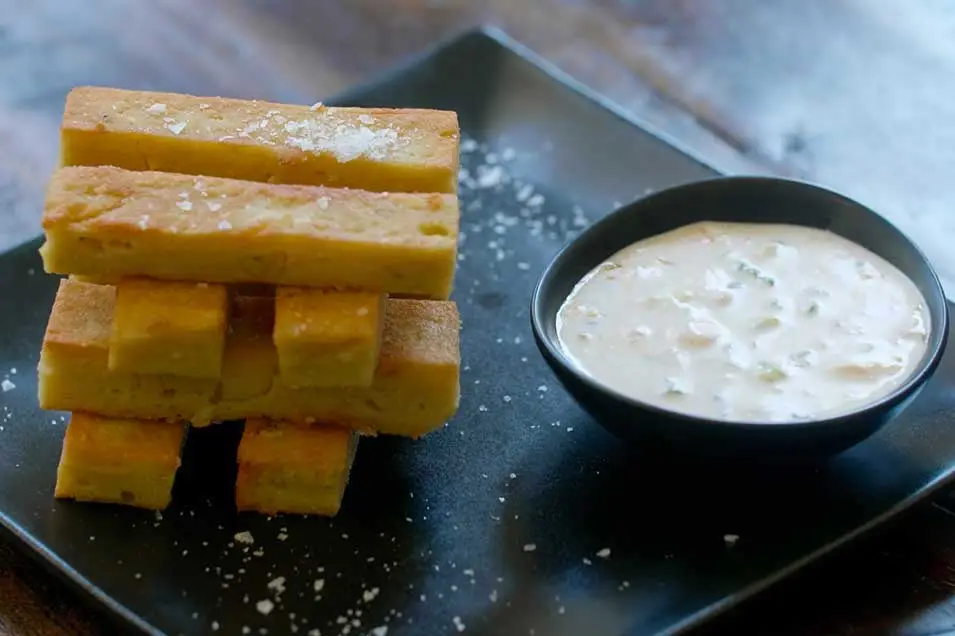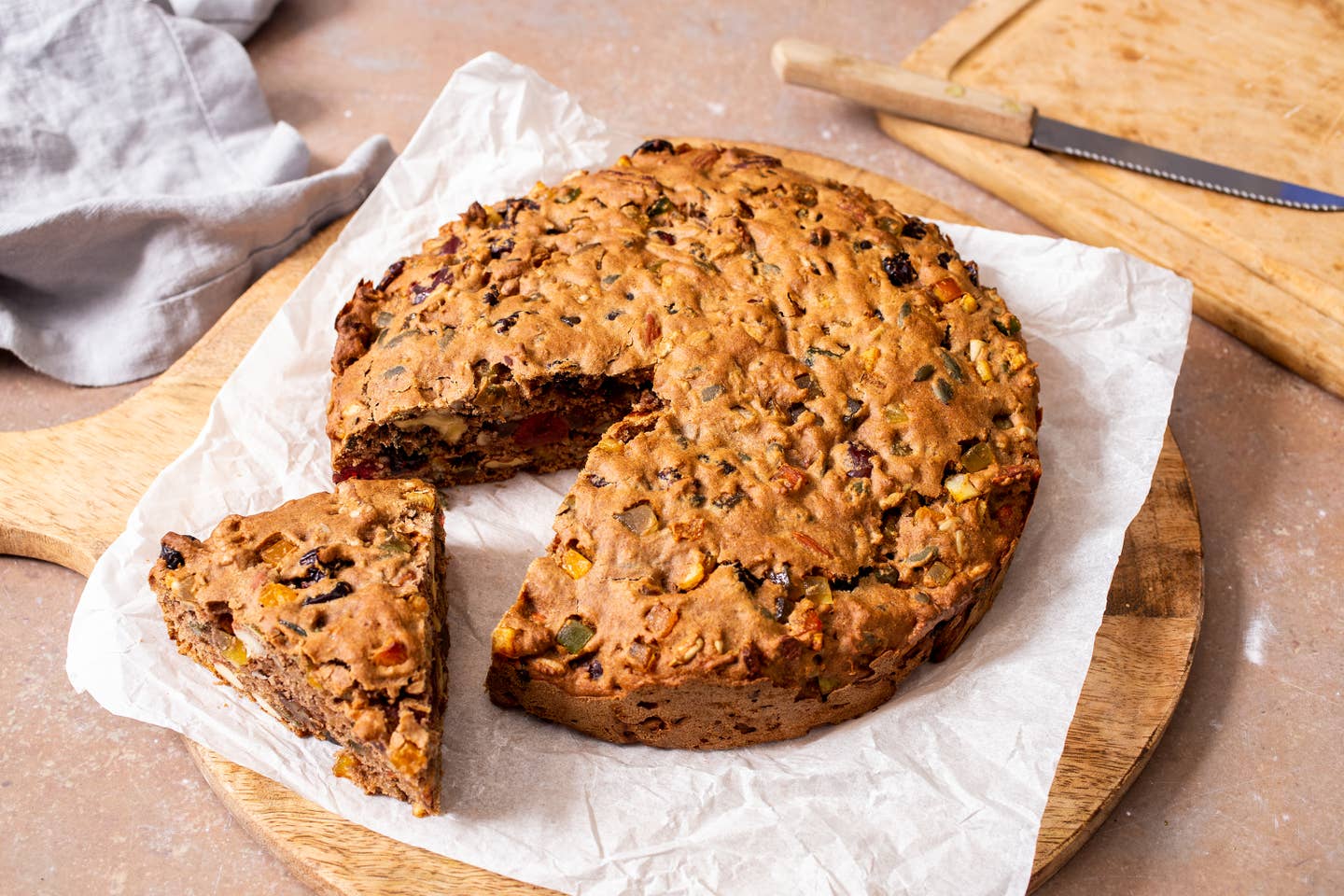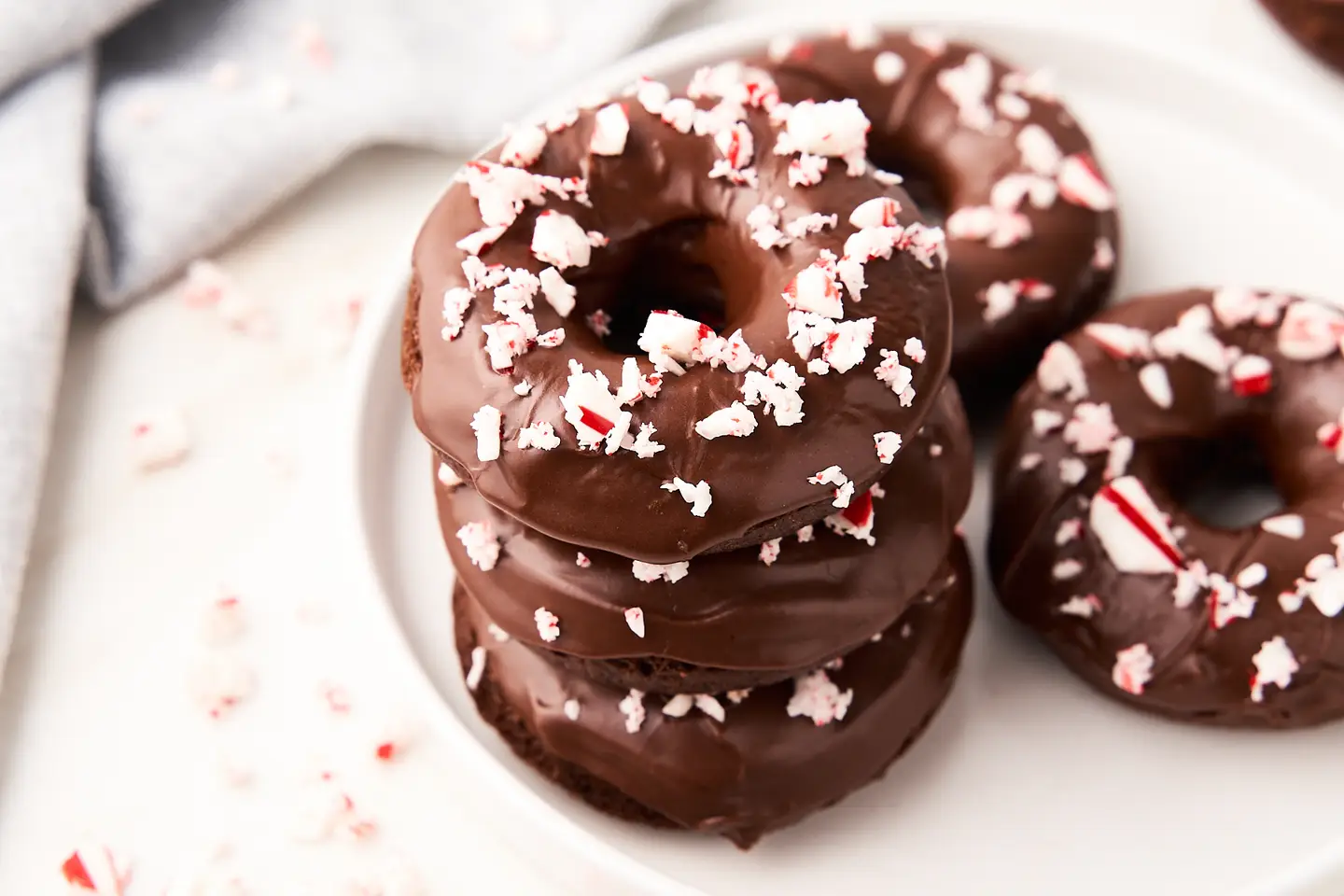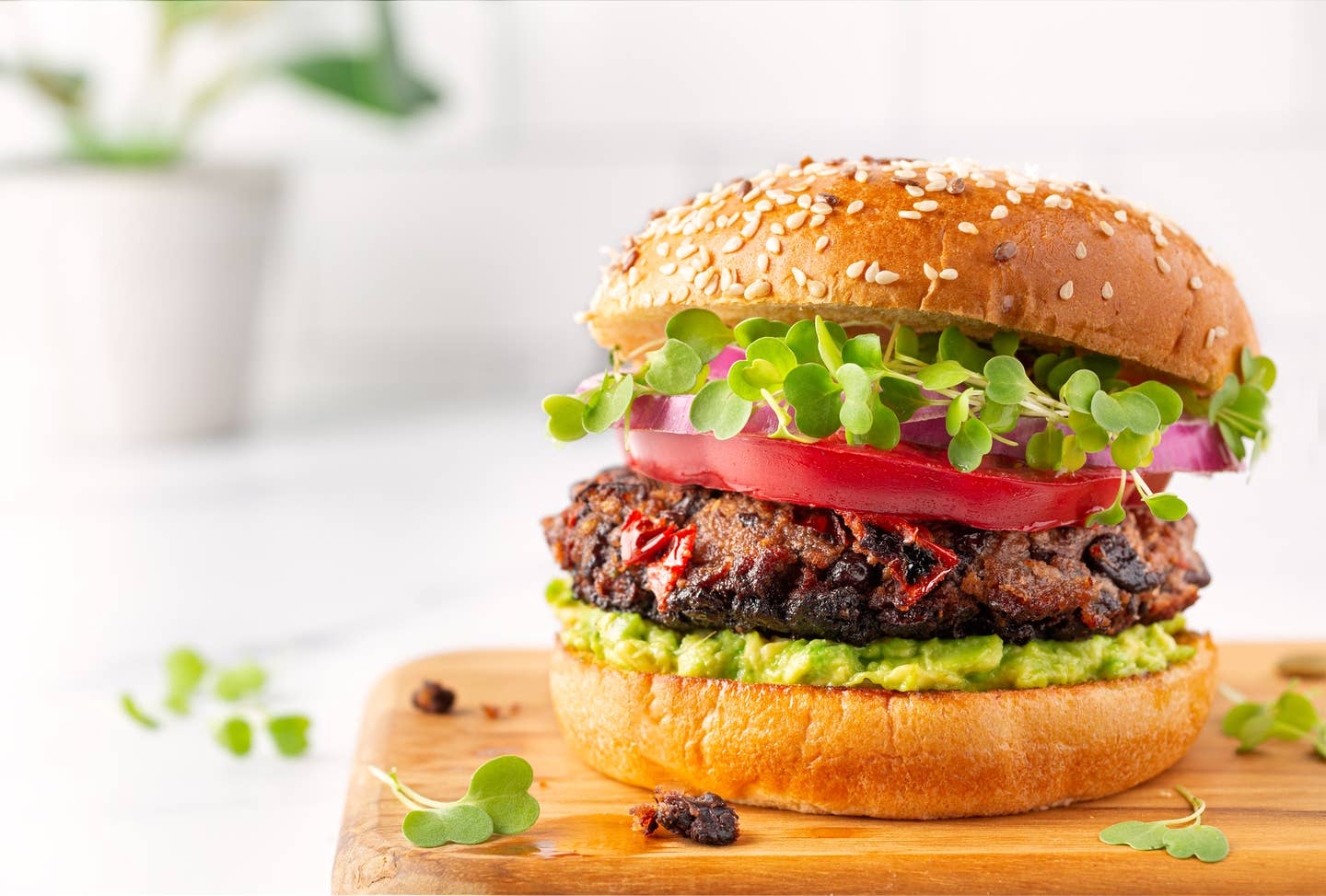
8 Heart-Healthy Recipes to Help Lower Your Risk of Heart Disease
When it comes to eating a heart-healthy diet, you hear a lot about what not to eat. Experts and studies tell us to stay away from red meat, especially processed meat, along with the type of fat that is present in animal products like full-fat dairy, known as saturated fat. So once we cross those off our list, what should we be eating? There are specific foods that have been shown to lower your risk of cardiovascular disease, by keeping cholesterol, blood pressure, blood lipids, and blood sugar in check. These foods are full of nutrients that help your body drive down all the markers that are known risk indicators of heart disease.
Here's how to incorporate heart-healthy foods into your meals and create a daily menu that will maximize the healthy compounds and nutrients, like antioxidants and fiber, that can ensure you have the best chance at avoiding cardiovascular disease, now or later.
Heart disease is effects half of all Americans
Heart disease will kill an estimated 659,000 Americans this year alone and is the leading cause of death in this country. It is also one of the most preventable illnesses that consumers face, along with type 2 diabetes and obesity. Luckily, eating certain foods that improve heart health help to lower your risk for heart disease as well as type 2 diabetes, obesity, and high blood pressure, which all are connected to lifestyle choices that you make every day, to exercise and eat healthy.
Studies have shown that many plant-based foods help lower your risk of heart disease, by lowering your LDL cholesterol, or so-called "bad" cholesterol that leads to blockages in the arteries, blood pressure, and chances of heart attack or stroke.
What should you eat? High-fiber foods full of antioxidants
Focus on eating foods that are high in fiber, low in fat, and minimally processed, which essentially means focusing on whole plant-based foods like fruits, vegetables, whole grains, legumes, nuts, seeds, and as many leafy greens as possible.
When shopping and planning your daily menu, choose foods that have colorful pigments, since the same compounds that make beets dark, rich red are also powerful flavonoids that can fight inflammation in the body, and lower your risk of heart disease.
Heart-healthy foods to eat daily:
- Leafy greens like spinach and kale for fiber
- Berries including blueberries, strawberries, and raspberries are full of antioxidants
- Legumes such as beans, chickpeas, and soybean high in fiber
- Whole grains like quinoa, oats, barley, whole wheat, and wild rice
- Cruciferous vegetables like broccoli, Brussels sprouts, and cauliflower
- Tomatoes for lycopene and antioxidants
- Red and green peppers, full of vitamins
- Citrus fruits full of fiber and vitamin C
- Beets and other purple plant foods with B9 and antioxidants
- Walnuts, almonds, and other nuts for healthy fat
- Chia seeds, flaxseeds, and pumpkin seeds
- Olive oil or avocado oil (not vegetable oil)
- Avocado for the type of healthy fat it contains
Here are your recipes that incorporate most of what you need, but of course feel free to improvise. A day that starts with oatmeal and almond milk, has a large salad of leafy greens quinoa, and chickpeas, and ends with a dinner of whole wheat pasta, tomato sauce, and a mixture of vegetables is a pretty perfect day. Here is more inspiration for heart-healthy meals.
1. Dr. Fuhrman’s Super Green Smoothie With Dates
"Any smoothie that gets a person to eat green veggies is a good idea, so long as you're not also adding sugar or the equivalent," Dr. Joel Fuhrman says. "So for instance, you can add dates, but not too many — don't make it too fruity. Try to think of getting as many greens in it as possible." Here's Dr. Fuhrman's smoothie recipe, for when you need to up your nutrients!
Why it's heart-healthy: Broccoli is one of the only dark veggies that have calcium. It also is full of vitamins and antioxidants, including a disease-fighting agent that boosts immunity even as it helps take the stress off your organs. Cruciferous vegetables like broccoli help fight diseases, including heart disease.
Recipe: Super Green Smoothie
2. One-Pan Vegan Southwest Sweet Potato Hash Wrap
This vegan hash is made with crispy golden sweet potatoes and mixed with protein-packed black beans, sweet corn, fresh kale, and more.
Why it's heart-healthy: This recipe is filled with complex carbs that are great for weight loss and disease prevention – including heart disease.
3. Beet Carpaccio with Broccoli and Pistachio Crumbles
To make this recipe extra healthy, use less olive oil or swap it for tahini, balsamic vinegar, or water. Double the amount of broccoli and herbs for an extra 'green' version to load up on vitamins and minerals.
Why it's heart-healthy: Beets are one of the many heart-healthy foods we should eat more of because they contain a high concentration of nitrates which may help lower blood pressure levels and your risk of heart disease and stroke.
Recipe: Vegan Beet Carpaccio Recipe
4. Pear Salad with Maple Mustard Vinaigrette
This salad is loaded with fiber from all the veggies and is high in protein thanks to the quinoa. If you want to up the protein content, feel free to toss in a cup of chickpeas or some tofu.
Why it's heart-healthy: Leafy greens are rich in nutrients, vitamins, and minerals, especially vitamin B, or folate, which is helpful for heart disease prevention. This salad will keep you full, satisfied, and energized with all the highly nutritious ingredients.
5. Loaded Salad with Creamy Hemp-Balsamic Dressing
The salad bowl calls for fiber-filled foods like chickpeas, quinoa, cauliflower, and nuts which all help you to feel fuller longer. The all-natural salad dressing is a blend of dates, hemp seeds, balsamic vinegar, freshly squeezed orange juice, Dijon mustard, and tamari – so you can avoid dressings that are full of artificial sugars and other additives.
Why it's heart-healthy: The fiber in quinoa can help lower LDL cholesterol and blood sugar levels which may help reduce your risk of diabetes and heart disease. Quinoa is also rich in antioxidants which help the body fight diseases, including heart disease.
6. Vegan Stuffed Cabbage Rolls with Smoked Tofu
We love the idea of stuffed cabbage but more recipes call for beef, port or a mixture, which is high in saturated fat. This recipe uses smoked tofu, which is a clean protein source.
Why it's heart-healthy: Cabbage is one of the heart-healthiest foods we can eat because it's been proven to increase levels of beta-carotene and lutein, two very important heart-protective antioxidants. According to the study published in The Journal of the American Heart Association, cabbage and other cruciferous vegetables can prevent the hardening of arteries and decrease the risk of heart disease when consumed three times a day.
To make this dish even healthier, try one of these helpful tips:
- Make this dish oil-free by sautéing the onion in a non-stick skillet without any oil
- Instead of brown rice, you can try millet, quinoa, or buckwheat
- Add chopped greens to the filling for extra nutrients
7. Healthy Black Bean Burger With Homemade Vegan Cheese Sauce
Just because you want to eat healthier or plant-based doesn't mean you have to give up a classic cheeseburger. Make it with healthy ingredients like beans and cashew cheese.
Why it's heart-healthy: Beans and other legumes are high in fiber and other nutrients that benefit cardiovascular health. They are also low in fat and free of cholesterol. Cashew-based cheese is one of the healthiest alternatives to regular dairy cheese because it does not contain animal fats which have been linked to inflammation in the body.
Recipe: Vegan Black Bean Cheeseburger
8. Chocolate Avocado Mousse
Avocados help boost immunity, lower bad cholesterol, contain 20 different vitamins and minerals (more than a daily supplement), and are high in fiber which helps us stay fuller longer. Eating avocado keeps you full for six hours afterward, according to a study.
Why it's heart-healthy: Foods that are high in fiber help reduce blood pressure, inflammation, and LDL cholesterol, according to a different study.
Recipe: Vegan Chocolate Avocado Mousse
For more lists of recipes, check out:
- 7 simple plant-based recipe ideas for under $1 a serving
- 7 popular plant-based soup recipes
- 5 high-fiber recipes that help boost weight loss
- 7 easy plant-based breakfast recipe ideas
- 7 Super Bowl plant-based recipes
- 11 vegan Valentine's Day recipes
Bottom Line: To Eat Heart-Healthy, Choose High Fiber Foods with Antioxidants
Just because you want to be heart-healthy doesn't mean a lifetime of boring salads or rabbit food. There are ways to incorporate heart-healthy ingredients into your favorite dishes and enjoy delicious plant-based meals that are full of fiber, antioxidants that help keep markers for heart diseas, like cholesterol and blood pressure in check.
For more great-tasting plant-based recipes that are healthier for you, go to The Beet's recipe library for ideas that are easy, quick and won't break the bank.
More From The Beet
